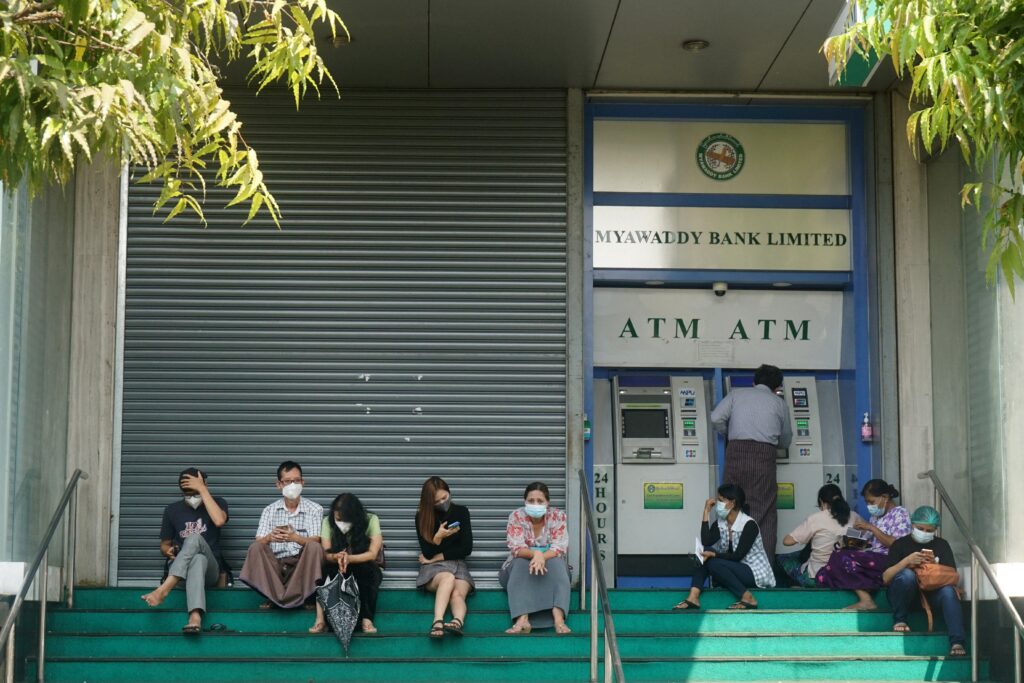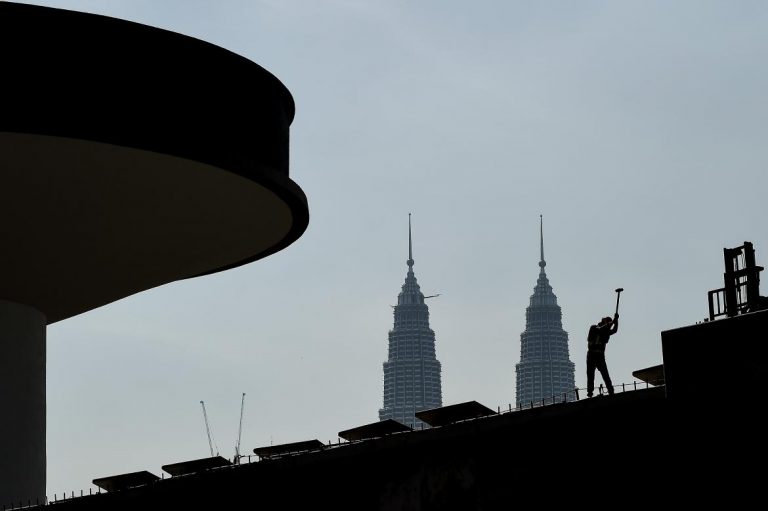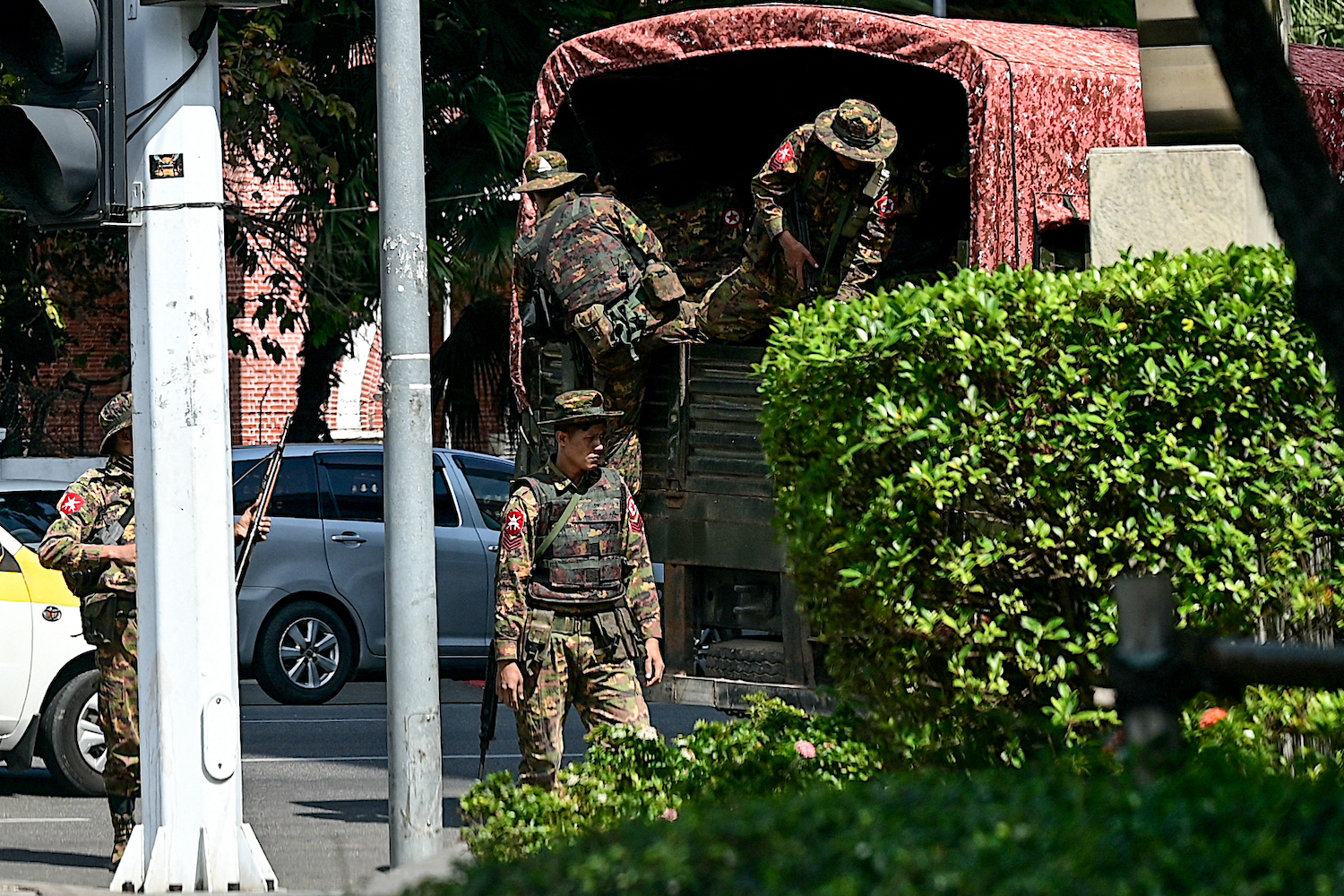OPINION
The people may bear the brunt of the Financial Action Task Force’s demotion of the country, creating an urgent need for more creative approaches from the international community.
By PETER KUCIK | FRONTIER
When Myanmar returned to the Financial Action Task Force blacklist on October 21, it joined Iran and North Korea, two of the world’s top pariah states. FATF is an international organisation that sets standards to protect the global financial system from money laundering and terrorist financing, and each blacklisting is accompanied by a call for enhanced due diligence and/or countermeasures in dealings with the country in question.
While commentators have been busy discussing the merits of the action and its likely impacts – both positive and negative – the bigger picture risks being lost.
FATF’s determination that Myanmar’s military junta is failing to regulate its banking and financial sectors to counter money laundering and illicit financing is no doubt warranted. While the country’s financial system may not be as wholly co-opted by the regime as those in Iran and North Korea, its risks and deficiencies are real. More than anything else, FATF’s blacklisting is further proof of Myanmar’s decidedly negative trajectory under this repressive regime.
However, the tangible consequences of the blacklisting and its impact on the regime are hard to predict. There is no difference in FATF’s recommendation of enhanced due diligence for either greylisted or blacklisted jurisdictions. While a greylisting is intended to be a “wakeup call” for a jurisdiction to address its deficiencies, blacklisted countries have simply been determined not to be actively combating money laundering or terrorist financing.
Although enhanced due diligence measures unquestionably increase the cost of financial transactions, FATF has recommended them for Myanmar since it greylisted the country in early 2020, a full year before the military coup of February 2021. Moreover, Myanmar was previously on the blacklist in the years preceding 2016, when it was under semi-civilian rule and its political trajectory was much more positive, and that status did not prevent rapid economic development. The impact of the recent blacklisting is therefore likely to be indirect and coupled with other factors: in today’s bleak political and economic environment, it serves as yet another warning that will chill Myanmar’s financial sector.
Unfortunately, the effects of this chilling will not be limited to the junta and military leadership. In practice, the blacklisting will slow or constrain aid and badly needed funding for civil society and NGOs, despite FATF’s urging that transactions for humanitarian assistance and remittances not be disrupted. While the blacklisting may be justified by the actions of the junta in the financial sector, the burden of the FATF action will sadly fall on the people of Myanmar.
Past experience also cautions against expectations of any decisive impact on the regime. Myanmar was on the blacklist from June 2001 until October 2006 and from October 2011 to February 2016, and then on the greylist from February to October 2016 and from February 2020 until the current blacklisting. During these periods, sanctions and other forms of economic pressure were also applied to push successive regimes towards political reforms or concessions, but without lasting success. Sanctions were likely not the sole or even decisive reason for the post-2011 reforms, and the likelihood of their reimposition did not deter the military from seizing power last year. Nonetheless, the international playbook today, as then, appears to be narrowly focused on trying to isolate the regime and starve it of resources.
Economic pressure and sanctions, which have become the first resort in global crises, will not by themselves end the conflict in Myanmar. The junta will not be economically starved out of existence; there is no singular FATF action or sanctions measure that will fatally wound the current regime or end its oppression of the Myanmar people. That is not to say that these tools cannot be useful – it is just that economic coercion by itself is not sufficient to solve the problem at hand.
Moreover, the junta’s illicit financing mechanisms will not be eliminated by the blacklisting, while legitimate financial transactions benefitting the Myanmar people and opposition may become collateral damage. Accordingly, the international community and those who are rightly horrified by the ongoing violence and repression in Myanmar must also bolster the support necessary for resistance to the junta to endure.
In tandem with any restrictive measures targeting the junta, the opposition in Myanmar must be given access to the funding and other resources needed to organise itself and continue to protect the people. Without a strengthened and durable opposition, the recycling of blunt economic countermeasures will have little success in dislodging the current regime, while causing lasting damage to the Myanmar economy and people’s livelihoods.
To break Myanmar’s decades-old cycle of violence and repression and offer real hope for the future, there must be regional and global engagement to galvanise support for lasting change. To respect the rights and interests of the Myanmar people, both the regional and international dialogue must include representatives of the opposition. Innovative diplomacy will be needed to resolve Myanmar’s political and military conflict, and that effort cannot be abandoned through misplaced hope for quick and easy fixes.
There is no silver bullet here, only the necessity of sustained hard work and overdue creative thinking.
Peter Kucik is a Managing Director in the Washington, DC office of Mercury Public Affairs. He is a trade and economic sanctions expert and has focused on Myanmar for over fifteen years, including in his work at the United States Treasury Department.







